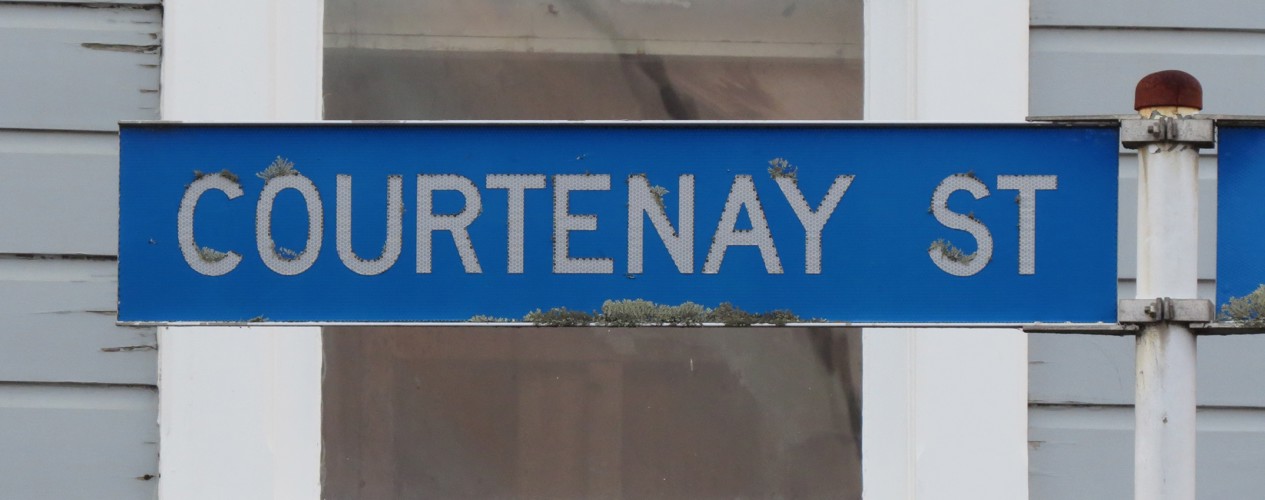 Courtenay Street sign (2021). Rachel Sonius. Word on the street image collection.
Courtenay Street sign (2021). Rachel Sonius. Word on the street image collection.
 Courtenay Street sign (2021). Rachel Sonius. Word on the street image collection.
Courtenay Street sign (2021). Rachel Sonius. Word on the street image collection.
Courtenay Street was named after William Reginald Courtenay (1807-1888), one of the trustees of the Plymouth Company. His father, the tenth Earl of Devon, was governor of the company and William was known as Lord Courtenay until he took over the earldom. William studied law at Oxford and was the Conservative Member of Parliament for South Devon between 1841 and 1849. He married Lady Elizabeth Fortescue in 1830 and the couple had four children but their sons William and Hugh both died young, leaving youngest son Edward to become the eleventh Earl. Lord Courtenay was immensely popular in England for his involvement with charitable causes.
Courtenay Street has been home to many notable New Plymouth residents over the years, including Chinese merchant Chew Chong (Chau Tseung), the Flight family who introduced some of the first sheep to Taranaki, and the grandparents of aviatrix Jean Batten.
New Plymouth’s first Methodist and Catholic churches were both built on Courtenay Street, in 1842 and 1860 respectively, and it was the site of the town’s fire station from 1914 until 1965, where Z petrol station is today. The 1990s saw many old villas along Courtenay Street moved or demolished to make way for supermarkets. Construction of New World began in 1992 at the same time as a site next to the Plymouth International Hotel was cleared to make way for the 3 Guys supermarket (later Countdown). New World’s carpark used to be the site of the Truby King Memorial Plunket Rooms and Central School infants’ department. Further up Courtenay Street, KFC has replaced the old Pike and Waters beverage factory, where New Zealand’s first bottles of Coca Cola were manufactured in 1953.
Despite all the changes over the years – including being made a one way street in the late 1970s – Courtenay Street still features many notable heritage buildings, including St Andrews Presbyterian Church, the Christian Science Church next to the Warehouse and the Egmont Steam Flour Mill, New Plymouth’s oldest surviving industrial building.
This story was originally published in the Taranaki Daily News.
Please do not reproduce these images without permission from Puke Ariki.
Contact us for more information or you can order images online here.